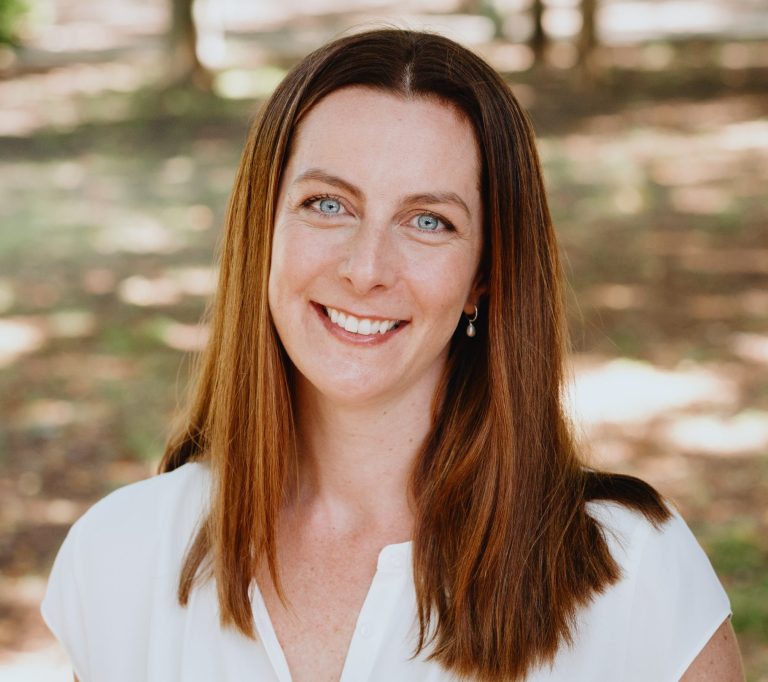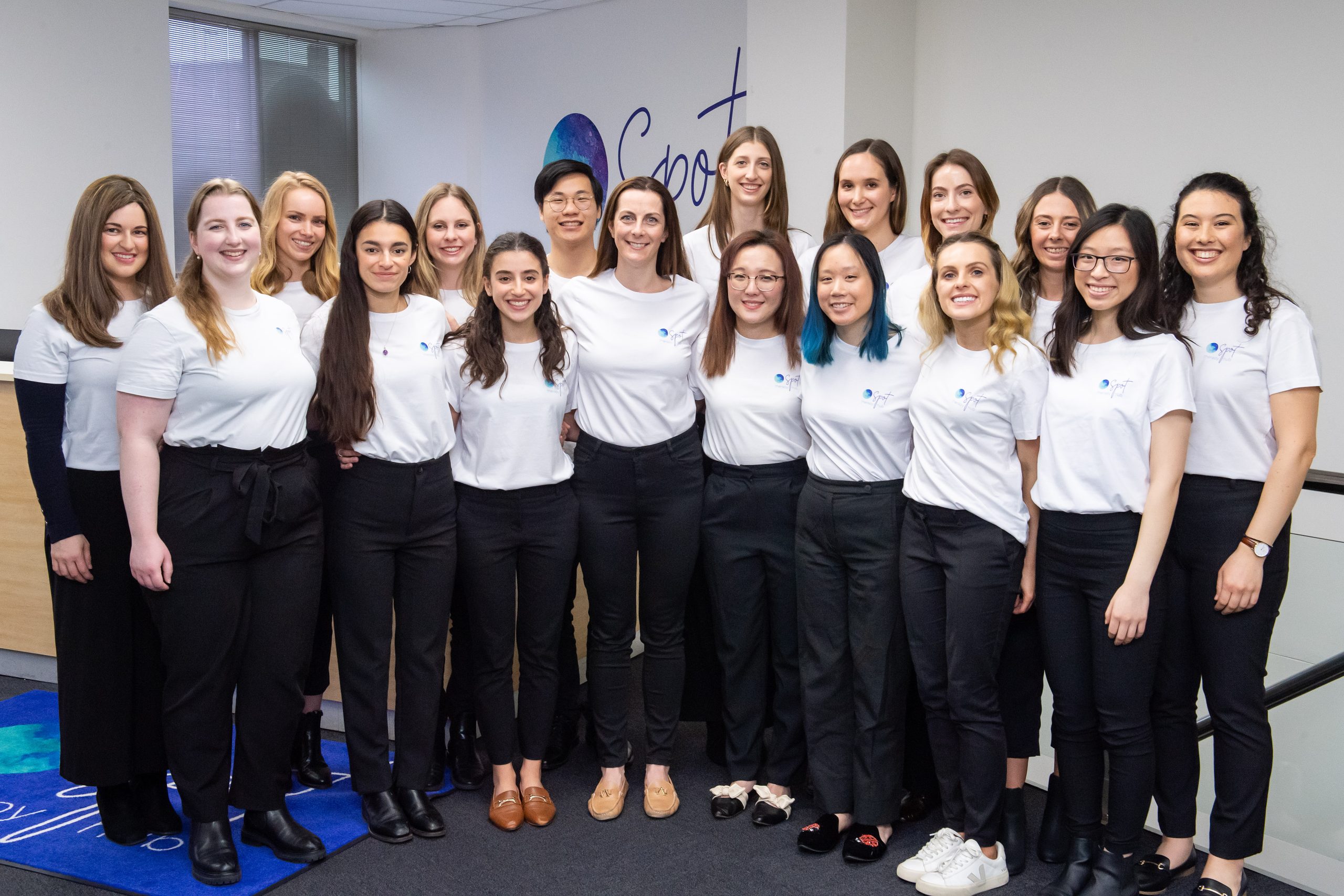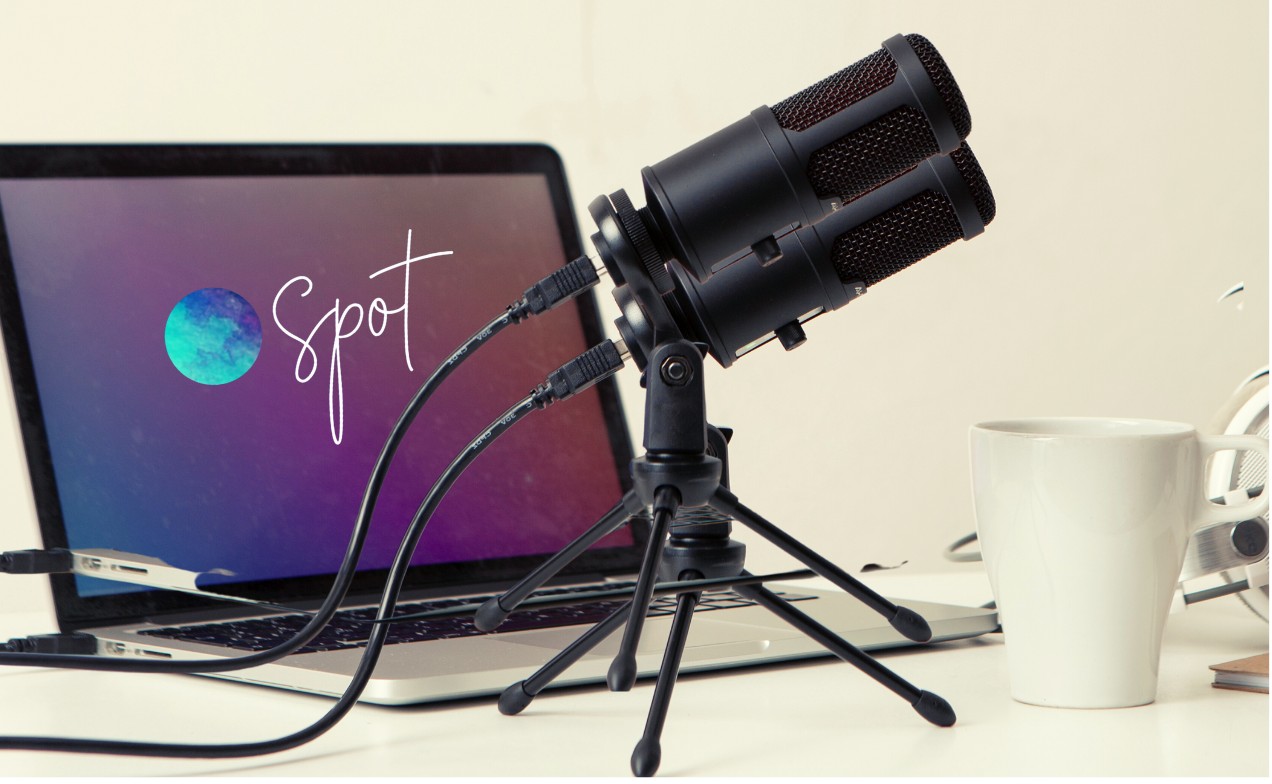
In Episode 1, we hear from Kate Broderick. Kate is the Director and Founder of SPOT Therapy Hub, a
mum of 4, a Speech Pathologist, Occupational Therapist, Orofacial Myologist and Breathing
Retrainer!

Welcome to the SPOT Therapy Hub Podcast. Kate Broderick is a mum of 4 and the director of SPOT Therapy Hub, or SPOT as known by most, for over 15 years. Kate is a dual qualified Speech Pathologist and Occupational Therapist.
This podcast will have some short informative episodes that will aim to simplify the research process for parents who may be wondering about a range of issues their child may be experiencing e.g. stuttering, difficulties with reading, and many more. This podcast will also showcase longer interviews with Kate’s clinical mentors, a range of professionals that inspire Kate and people who are just as passionate in improving the lives of their clients and families. Kate has had therapists on her team for the last 15 years and she is very proud of her current team. She will be inviting some of them too to share their speciality areas.

Kate has always been addicted to learning and has attended countless courses over the years. She is the student that sits on the front row and can’t resist asking questions or making comments to dig a little deeper into the topics presented. For the last 8 years, she has also attended these courses with her babies in tow (so she now sits at the back whilst breastfeeding and trying to keep a low profile – but still heavily participating!). Kate is always thinking about the rationales for things from more than one perspective. Last year, after sitting next to Kate for 4 days on a course, her friend and fellow speechie Nicole Hutchinson suggested Kate to make a podcast…and here we are!
Being a Mother and Therapist
Being a mother has certainly affected the way Kate has practiced as a therapist. Being a therapist has also affected how her life has been as a mother. But probably not in the way most people think. Throughout this podcast, Kate will share more of her own story and experiences. Despite having more knowledge about child development than the average bear, she is far from being a perfect parent. In fact, while she is giving advice to parents about what is optimal, she sometimes feels like a fraud knowing how hard it is to implement every strategy in real life. This knowledge is a new strength for Kate and she wants her clients to understand and be kind to themselves. She wants them to also celebrate all their successes and the thing they can do. Kate’s children also have an array of strengths and vulnerabilities, just like everyone else’s. Over the years, Kate has shared their stories with her clients and some of have, ‘wow, what are the chances you have a child with that?!’. Kate’s response is always the same – ‘my chances are the same as everyone else’s’’.
While Kate enjoys and would love to hang out with other parents in car lines and netball, sometimes she finds it a little hard. When conversations turn to concerns on speech, language or handwriting difficulties, and the consensus is to ‘wait and see’ or not to worry, Kate struggles a bit. Kate never walks down the street giving unsolicited advice but she also can’t join in these conversations, so she fades away from these conversations.
In Kate’s first pregnancy, she had preeclampsia, and it did progress to HELLP syndrome which is pretty serious. Kate felt like she was dying which she kind of was and she shared that experience with a lot of medical friends. Subconsciously, she was probably fishing for their validation of her concerns and they rightly so felt it was not suitable to comment and left it to Kate’s treating doctors.
As a mother who spends a lot of time talking about her own kids and her client’s kids, her own personal experience causes her to worry sometimes that her friends, strangers or new acquaintances when they hear what Kate does for work, might leave their kids without support because her lack of commenting leaves them with reassurance that everything is ok.
Kate hopes that everybody both families and professionals find these podcasts helpful and interesting. It might show a new perspective whether that is one that comes for a therapist or a mother.

Kate has many passions but, in a nutshell, they are ADHD, learning disability including dyslexia, dyscalculia (dyslexia for maths) and dysgraphia, and supporting children and adults with a diagnosis of Autism Spectrum Disorder (Autistic children and adult – take note of episode 4 where we talk about the nuances of language).
One of her biggest passion is orofacial myofunctional therapy (OMT). OMT falls within the scope of Speech Pathology and arguably it falls under an innovative area of Speech Pathology practice. In fact, there are Speech Pathologists who have been practicing this area for decades but definitions have been refined over time and at one point it was confused with non-speech oral motor exercises. Thankfully, in more recent years, OMT has been formally added to the Speech Pathology scope of practice. First by ASHA (American Speech Language Hearing Association) and then by SPA (Speech Pathology Australia).
OMT takes you down a rabbit hole of sub specialities. Kate hopes this podcast will spread the word of important but sometimes controversial topics such as tongue ties (tethered oral tissues). When Kate was at university, she was taught that tongue ties did not affect speech but clinical experience showed her otherwise. Kate saw kids with dental occlusion and airway problems, getting stuck in treatment for years. They couldn’t generalise or habituate their new speech skills to their everyday lives. In her quest to find out why, Kate found OMT. Kate also found that these children often had feeding issues, oral habits (thumb sucking, nail biting) and breathing issues. Breathing issues during the day affect their sleep and in turn over time, these children can also have learning and attention issues that unpack themselves in the future. At SPOT, we try to be proactive in screening for vulnerabilities in all these areas so that these kids get the best possible start in life.
The other huge area Kate wants to tell the world about is Breathing and Breathing Retraining. Kate has been practising for almost 20 years and every area of her practice (including speech, fluency, voice, learning disability which we often see alongside ADHD, motor coordination issues) in children, young adults and adults, keeps leading her to associated components of breathing, airway and sleep issues. This isn’t something commonly known or thought of but with proper management, it can really lead to greater success and progress in all our therapy goals.
Speech Pathologists and Occupational Therapists are amazing people. They have the ability to help people with lots of very specific goals that will improve their life. But in reality, Kate doesn’t get to help every person or even every child that walks through her door. Sometimes resources in life means that children can’t be brought into therapy every week or for months or years which might be what is truly required for them to achieve all their goals. Even if Kate doesn’t get to help with all the little things, if she can be a part of the process of identifying and treating issues with breathing or sleep, she knows that would have made a significant impact on that child’s life.
So….let’s get started with the podcast with some amazing guests! The SPOT Therapy Hub Podcast is available on Spotify, Apple Podcast and on our website www.spottherapyhub.com.au
We also have blogs on our website which cover a range of topics – all things Speech Pathology, Occupational Therapy and Orofacial Myofunctional Therapy!